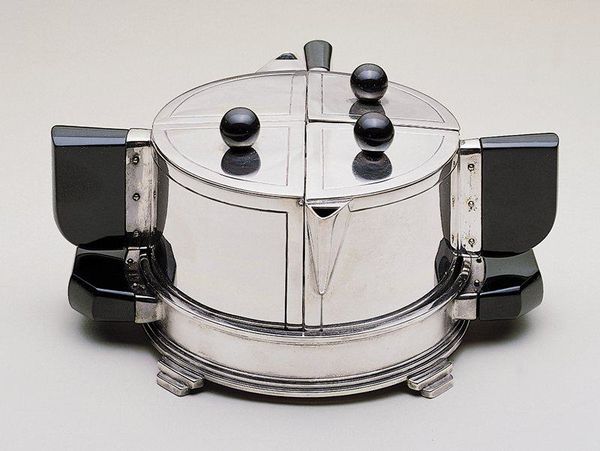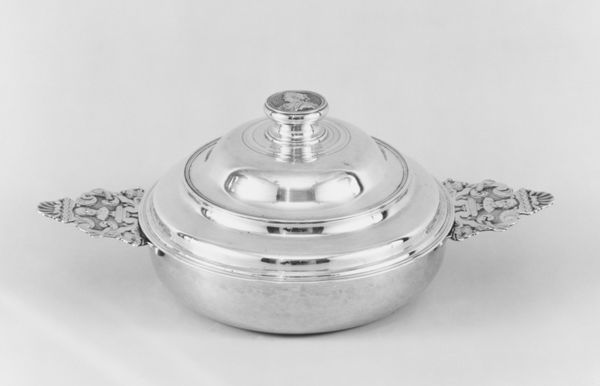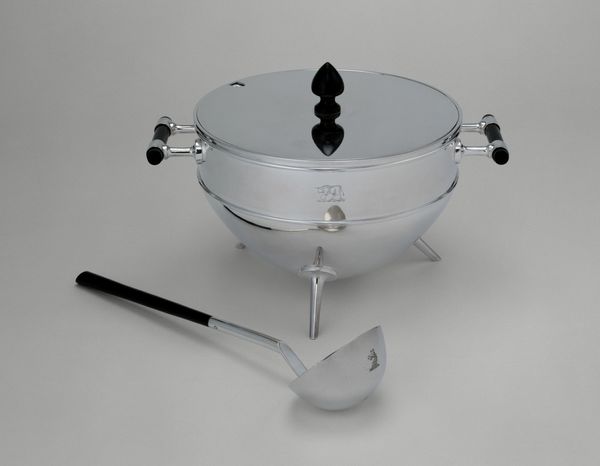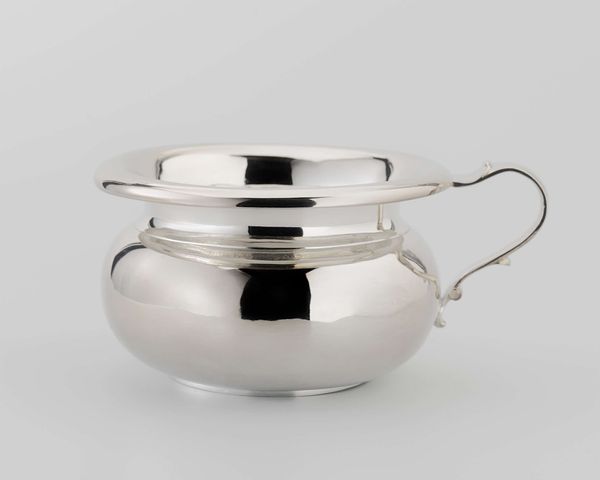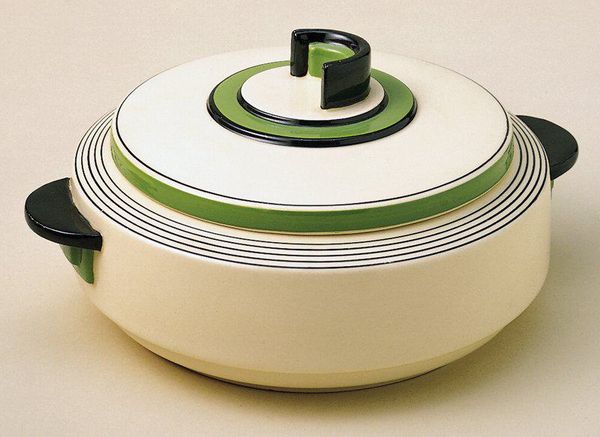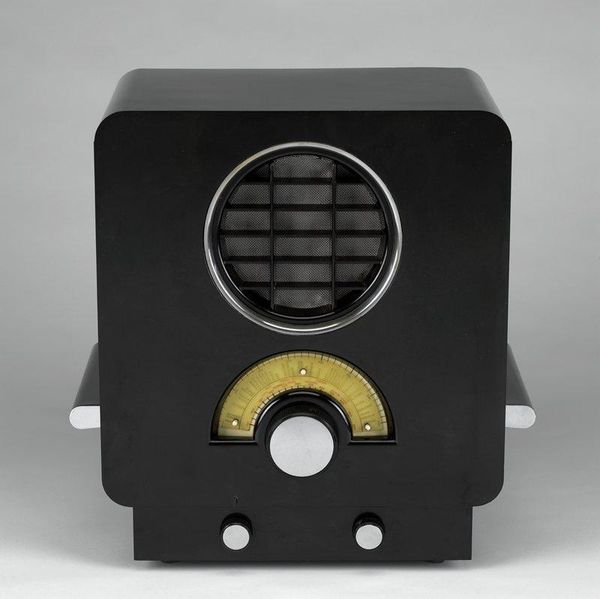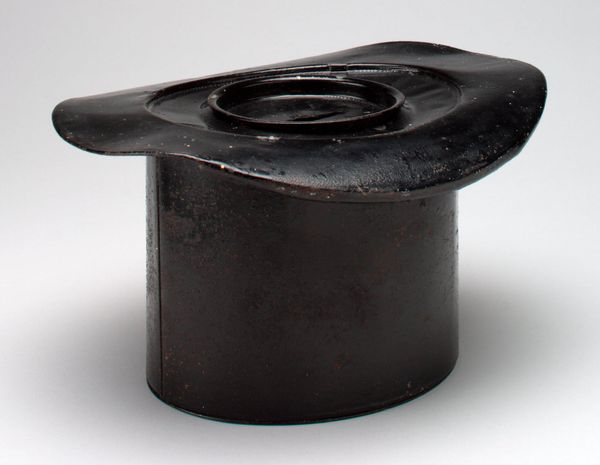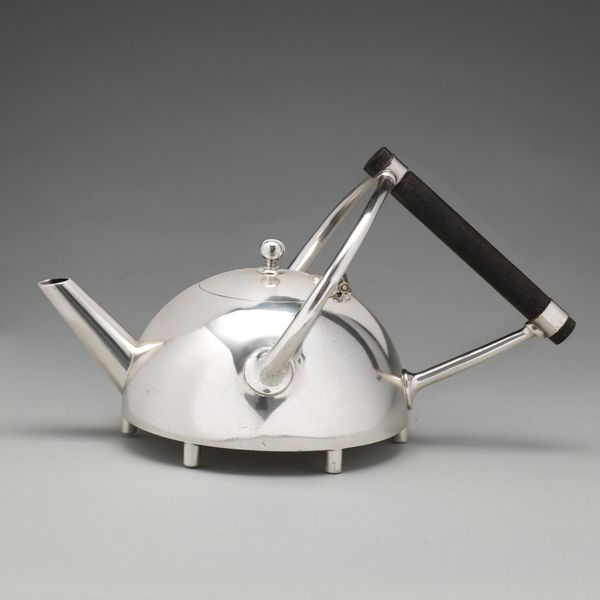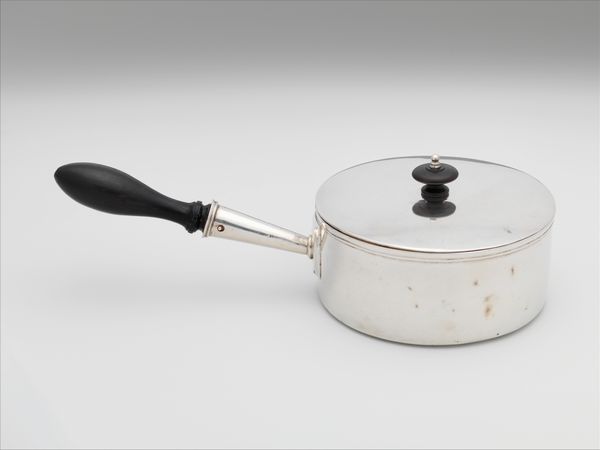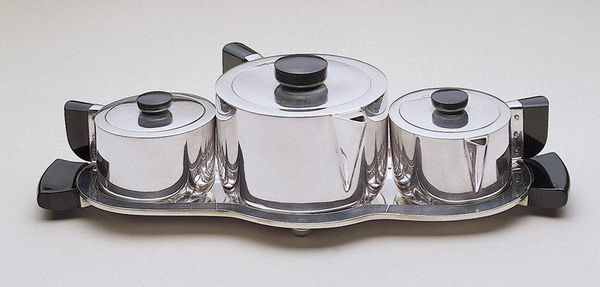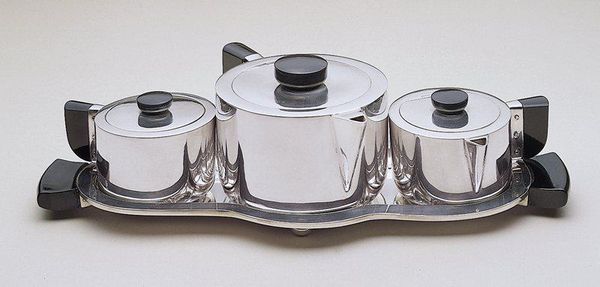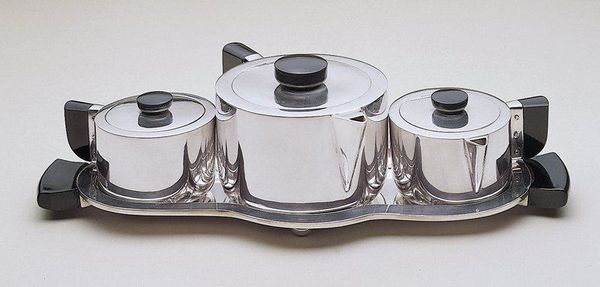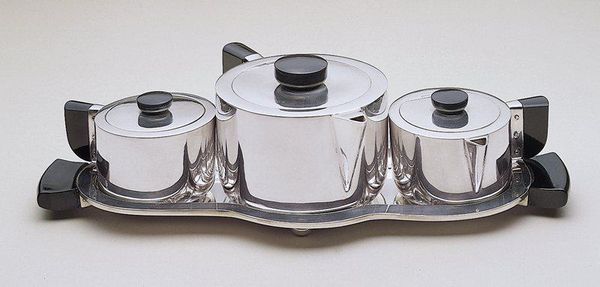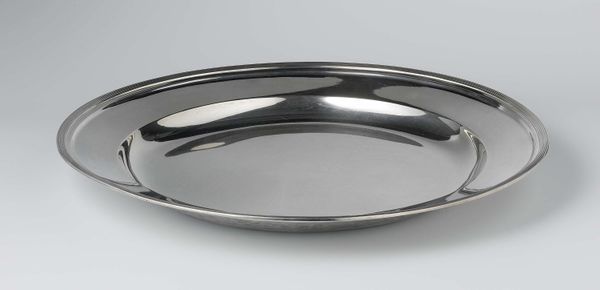
metal, readymade
#
art-deco
#
3d sculpting
#
3d model
#
3d image
#
3d printed part
#
metal
#
plastic material rendering
#
virtual 3d design
#
readymade
#
3d shape
#
3d digital graphic
#
metallic object render
#
3d modeling
#
united-states
#
decorative-art
Dimensions: 8-3/4 x 12 x 11-3/16 in. (22.2 x 30.5 x 28.4 cm)
Copyright: No Known Copyright
This is Karl Ratliff's Twin-O-Matic waffle iron. Its streamlined form immediately catches the eye with its gleaming surfaces and balanced symmetry. The interplay of light and shadow across the chrome and plastic evokes a sense of futuristic modernity. Ratliff masterfully plays with geometric volumes, juxtaposing the circular base and top with the horizontal lines of the iron’s body. This creates a compelling visual tension, drawing us in. The design also hints at structuralism, where the object's function—making waffles—is subtly coded within its form. The contrasting black and chrome elements not only highlight the waffle iron's shape, but also echo the broader cultural codes of progress and efficiency that defined the mid-20th century. Consider how the composition's balance and symmetry invite an ongoing interpretation of how design intersects with both functionality and the cultural values of its time.
Comments
minneapolisinstituteofart about 2 years ago
⋮
Manning-Bowman introduced a waffle iron in 1937 that could bake two waffles in the space and time of one, all in a streamlined case. Batter is poured onto the top griddle and then the unit is rotated allowing batter to flow to the second griddle. The 1937 catalogue noted "The Twin Reversible overcomes once and for all the inconvenience of trying to satisfy hungry appetites with inadequate servings." By 1941, the unit was given a new name, the "Twin-O-Matic."
Join the conversation
Join millions of artists and users on Artera today and experience the ultimate creative platform.
